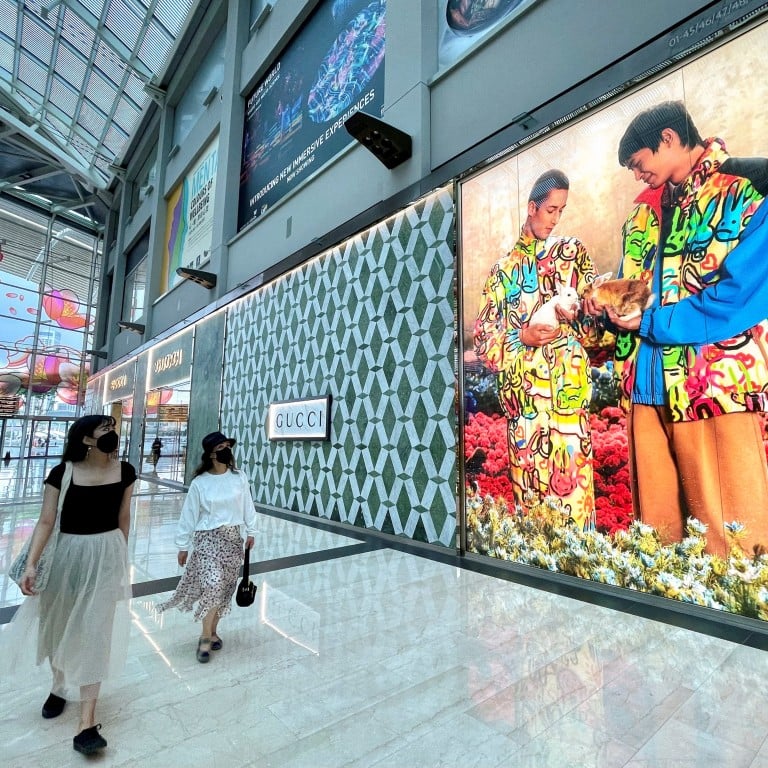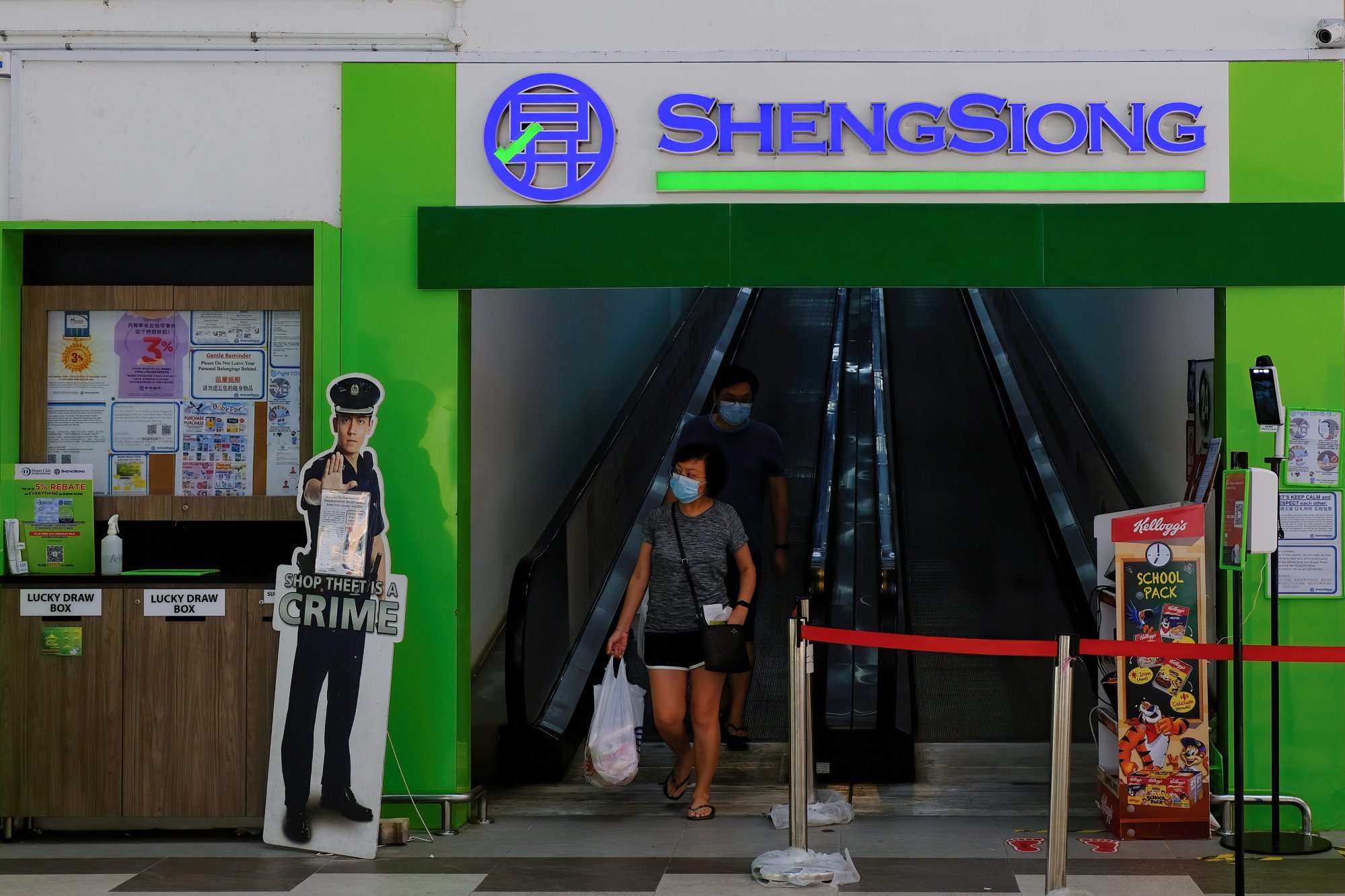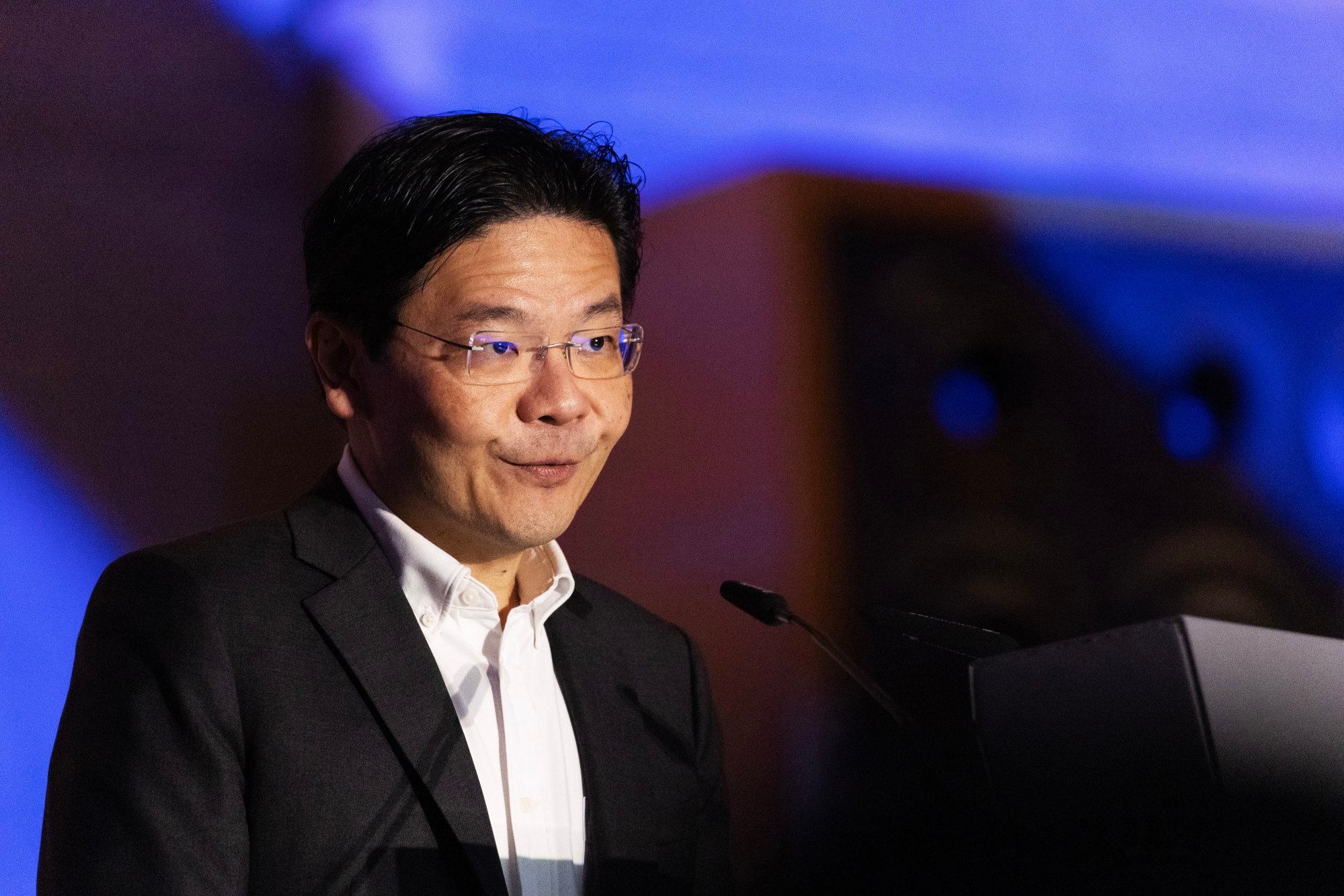
Singapore residents to feel 2024 GST hike’s ‘psychological pinch’ even with government’s cushioning measures
- The higher GST is set to remain a hotly debated issue ahead of Singapore’s leadership transition and next general elections, analysts say
- Businesses in Singapore have unveiled promotions to lure shoppers before the rise in GST from 8 per cent to 9 per cent on January 1
With the country inching closer to the general elections, which have to be called by November 2025, the goods and services tax (GST) is expected to be a hotly debated issue among the rival political parties, they add.
Singapore’s GST increased from 7 per cent to 8 per cent on January 1, 2023. On the first day of 2024, it is set to increase to 9 per cent.
Earlier this year, Singapore unveiled a budget that was heavily focused on social policies, with a slew of measures aimed at insulating young families, older citizens and gig workers from inflation and the GST.
Singapore’s core inflation, which excludes private road transport and accommodation costs, declined to 3.2 per cent year-on-year in November from 3.3 per cent in October. Headline – or overall – inflation fell to 3.6 per cent from 4.7 per cent over the same period.
Can Singapore hawkers keep afloat amid ‘pain’ of rising food, rent costs?
The impact of the second one percentage point hike in the GST may be mitigated by other factors such as government handouts, wage growth and employment gains, but higher daily expenses will be a painful reminder to consumers, economists said.
“Nobody wants to pay more, obviously, but because there are still opportunities for employment growth and wage growth – that helps. It won’t be perfect because even though you may be getting offsets, rebates and cash transfers, somehow it doesn’t feel the same when you pay more daily,” said Song Seng Wun, an economics consultant at CGS-CIMB Securities.
“It is partly psychological but you can cope when you have a steady job and steady income, and occasionally, you get rebates that help offset the utility costs, for instance.”
Despite headline and core inflation subsiding, the higher price adjustments in transport, housing and electricity would likely mean that consumers will still “feel the pinch”, said Selena Ling, chief economist at Singapore’s OCBC.
“Given this is a two-step process, businesses are better prepared for the move. But consumers may be resigned to facing higher pass-through from the GST hike. The key is whether the wage growth in 2024 will continue to keep pace with inflation,” Ling said.

In a bid to entice shoppers to spend ahead of the tax increase, many retail businesses have rolled out attractive year-end discounts while others have announced plans to absorb the tax increase.
One such store is Ikea Singapore, which announced to shoppers last week that it wants to “ensure that their home furnishings remain affordable for the many people in Singapore amid rising cost of living” and will be absorbing the one percentage point increase in GST.
The Swedish furniture giant had also done the same promotion ahead of the first of the two-stage GST hike on January 1.
Supermarket chain Sheng Siong rolled out a “1 per cent counter-inflation discount storewide” for the first three months of 2024, except for several products such as infant formula, tobacco and medicinal products.
Furniture retailer Home Living advertised a “No GST Midnight Fiesta” on its Facebook page, offering “one for one” deals and supposed “factory direct prices” for its furniture on December 30.
Other smaller businesses like Book Bar, a bookshop that will be absorbing the additional one percentage point rise, will see a 5 per cent cut in profits, slashing already thin margins.
“We have to pay GST to almost all of our suppliers and also on our rent and utilities, so it would cost the business maybe 5 per cent in profits every month,” co-founder Alex Chua said. “Considering our margins on books are already very small, it would have a significant impact.”
Singapore must guard against ‘frittering away’ reserves, PM Lee says
But by and large, Song said the first GST increase to 8 per cent has been “absorbed well”, based on aggregate consumption levels, and Singaporeans can also expect more government handouts and measures to soften the impact next year.
However, the ruling People’s Action Party (PAP) government’s main rival, the Workers’ Party – has consistently voiced its objections to the GST hike since it was first announced in Budget 2018, calling for an adjustment to the republic’s reserves framework instead.
It is unlikely that the issue will go away any time soon, said Leong Chan Hoong, a social commentator on Singapore affairs, noting that “bread and butter” issues have always been a key concern for many.
However, Singaporeans have largely accepted the rationale behind tax increases, which the government said is to boost spending driven by a rapidly ageing population, Leong said.
“It depends on whether people feel benefited because the whole argument for raising taxes is that you will get the help that you need, particularly for vulnerable households. So naturally, when the time comes and you have the additional one percentage point increase in GST, it depends on whether people feel secure from government help schemes and handouts,” he said.

Opposition politicians are likely to continue to tap on unhappiness to put forth counter proposals to the GST hike, said Mustafa Izzuddin, a senior international affairs analyst with Solaris Strategies Singapore.
“The younger segments are far more discerning and likely to be more open to hearing more proposals from both the incumbent and opposition but whether this translates into votes is a different matter,” Mustafa said.
Next year’s budget, which will be announced on February 16, is likely to be similar to the one this year, which included public housing subsidies for new families and an enhanced baby bonus, he added.
The budget measures will be unveiled in a “crucial year” for the government, which will be undergoing a leadership transition before November next year.
“It’ll be important for the government to dampen the political impact of the tax increase,” as it will be a “precursor to the general election”, Mustafa said.
“There is no reason to delay the political transition. Therefore, I intend to hand over to DPM Lawrence before the next GE. After that, I will be at Lawrence’s disposal,” said Lee.
The PAP has won 14 general elections and governed Singapore uninterrupted since 1959, with Lee having led the party in the past four polls.

